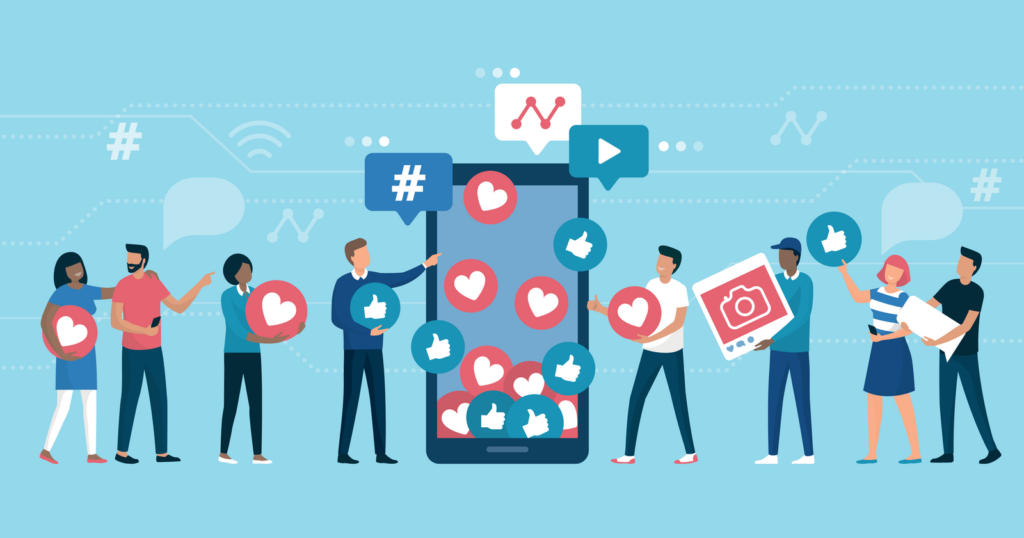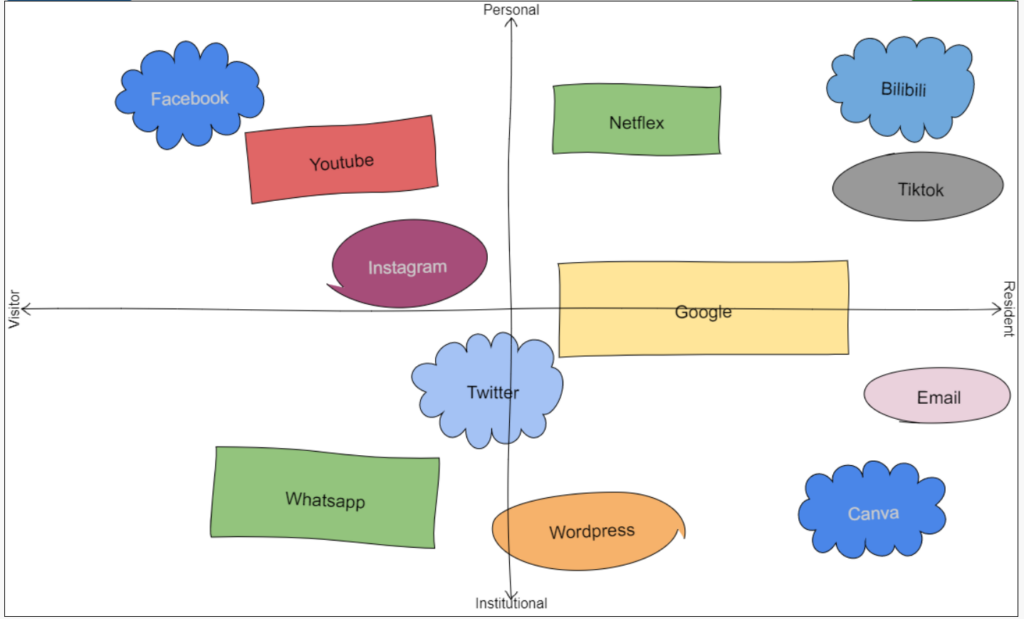
What digital platforms are students currently using to develop their professional network?
I use Facebook, Twitter, and Instagram. Of these three social media, I like to use Facebook the most. Facebook has public platform pages where I can see their regular updates directly. In addition, Facebook can establish groups so like-minded people can gather together. In addition, it is different from the groups of social software. Each Group has its public homepage, and Group members can post posts in the Group and reply “like” to other members. I think Facebook is an excellent social platform.
There are differences between Twitter and Facebook. It can receive news, ask questions, follow people of interest, and chat. Twitter posts are character limited. The downside is that you can’t send a lot of content, but the upside is that you can browse a lot of information quickly.
Instagram is more like the Posting of personal status, and people are more in the Story app. The videos are short, and people can quickly scroll through a lot of content, but it’s not as popular as Tiktok’s short videos. Instagram is more about life sharing.
As for the academic category, I know more about Quora. Quora is an exciting site that feels a bit like a search engine, a social network, but it’s designed to give you answers and allow you to answer other people’s questions about a subject you know something about. Many of the questions were academic.
What could the student consider in expanding their professional learning network?
The main concern is how we can get the proper knowledge efficiently and accurately. In social media, I think there are several ways to do this:
1. Join a team or online community. PLN is about working with partners, sharing their knowledge, and asking questions. We might argue about some of the points when co-authoring, but it’s progress. Online communities have more advantages than teamwork because we can meet experts worldwide, and these issues are at different times. We can post your content wherever you want, and when people see it, they will post comments.
2. Find accurate public home pages or expert blogs. They usually publish academic content about relevant knowledge regularly. This information is up to date, and you won’t find it in a textbook. Learn to recognize which accounts are real and which are fake.
3. Build your platform. Although at first, as a beginner, we don’t know anything yet. But in our blog, we can organize what we have learned. Build your blog just like EDCI338, organize what you have learned into knowledge points, and then let other students comment on it. Other students are scholars of the same level as me, and I think such expected progress is very effective.
4. Take some online classes. Many universities have some online courses that are free, and everyone can take them. You can even get some certificates at the end of the course. The advantage of these courses is that their teaching information is accurate, and you can learn with confidence.
How do data privacy and security limit and/or promote a PLN?
As technology enables us to become more connected, it also brings potential dangers in the anonymity of its communications. We may encounter Sextortion, location exposure, daily life, and personal information leakage leading to the theft of our property. Or when our friends’ accounts are stolen, criminals may use their accounts to borrow money from us, which may also lead to the loss of our property. Network personal information security is a significant issue, and our personal information may be sold cheaply. In this respect, we can only do as much as possible to reduce the exposure of our specific information on the Internet. The benefit of PLN is that we can find like-minded partners in our personal learning community and even connect with experts, share our ideas, develop knowledge, and progress together. In an age of expensive education, a textbook may cost me $200. For me, I’m not too fond of these heavy books. I have no patience to read them. I prefer online teaching. Some free online courses can let us learn more about our major, and I think it’s good for me.
In your network how can you create a digital identity/ reputation?
Set up a professional public account and change your profile picture and profile. Avoid Posting my personal photos and real life information about my school. I will use my screen name instead of my name for the account name. I will delete my geographical location and try to avoid using my credit card. If I do, I will delete the information immediately.
How did pivots to work-from-home during the COVID-19 pandemic change how we should consider our social media connectivity and professional balance?
As a result of COVID-19, the school’s teaching has been turned into online courses. My internship has also become online, and my communication with colleagues has been used on social media. In fact, I usually use the Internet more people, and I think I can accept such a life. However, one of the disadvantages of remote work is that I can’t get timely feedback. Whether it is work or study, I always await a reply. I am not sure when I will receive a response. I prefer to solve problems face to face to solve the problem. Telework reduces work efficiency in communication. However, I don’t need to get up early to go to the company, so I have more rest time and improve the efficiency of my working time. There is a contradiction between the two.
V&R Map

Leave a Reply